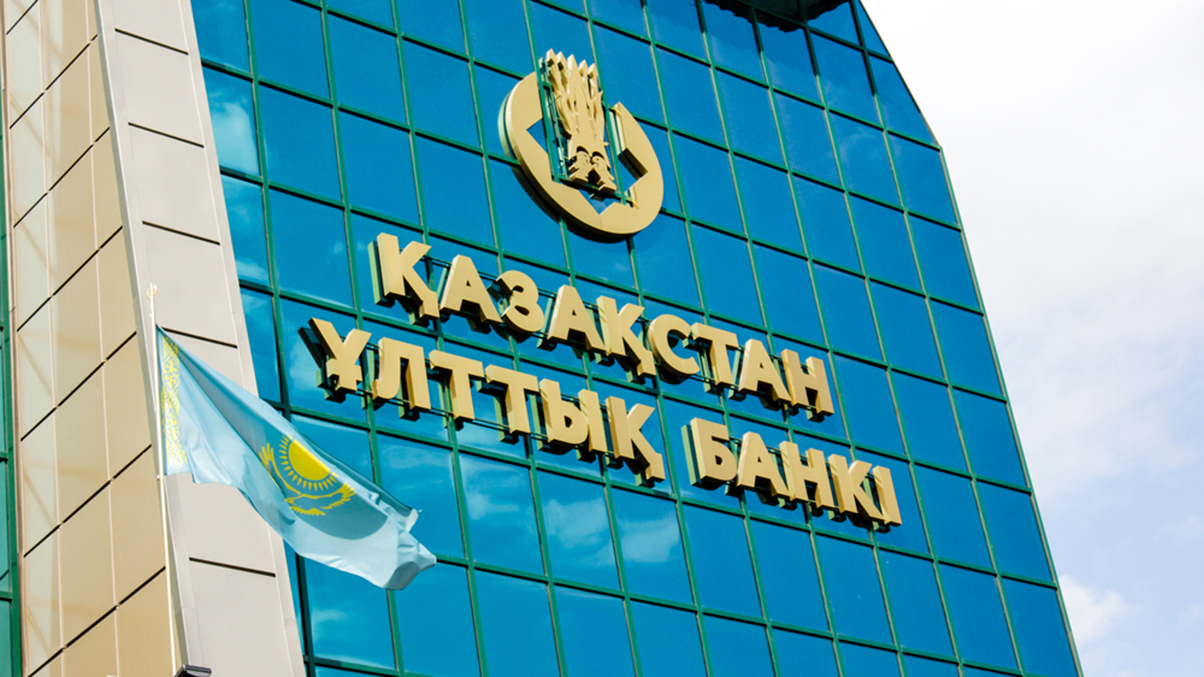In a judgment given on 2 July 2021, Mrs Justice Cockerill set aside an order granting permission to a claimant, VTB Commodities Trading DAC (“VTB”), to join two Russian parties to proceedings in England on the basis that the English court does not have jurisdiction over the claims.
Background
The factual and procedural background to the case in which we acted for Russian company JSC VO Machinoimport (“Machinoimport”) is complex. On 29 April 2019, JSC Antipinsky Refinery (“Antipinsky”, the largest independent oil refinery in Russia) announced that it would apply to enter a bankruptcy process in Russia.
VTB, a subsidiary of VTB Bank, the second-largest bank in Russia, had contracted with Antipinsky to buy a large quantity of high sulphur vacuum gasoil (“VGO”), a petroleum product produced by Antipinsky. VTB had made substantial pre-payments for this VGO (some €194.4m by the end of April 2019) and expected to receive 22 shipments by July 2019. VTB had already on-sold a number of these shipments to third parties.
When Antipinsky announced its bankruptcy, VTB immediately commenced six London Court of International Arbitration (LCIA) arbitrations in respect of the undelivered VGO and the prepayments it had made. In support of those arbitrations, VTB obtained two injunctions from the English court under Civil Procedure Rule (CPR) 62 and section 44 of the Arbitration Act 1996. These were a worldwide freezing order and a mandatory injunction requiring Antipinsky to deliver a particular cargo of VGO (the “s.44 Proceedings”).
Before its bankruptcy, Antipinsky had also sold shipments of VGO to our client Machinoimport. Machinoimport had on-sold on the cargoes to third parties, in particular, a Swiss company, Petraco Oil Company SA (“Petraco”). The shipment over which VTB obtained its injunction was one such cargo and, when it found out about the injunction, Petraco intervened in the s.44 Proceedings in an attempt to recover the cargo.
Usually, a party obtaining an injunction must undertake to compensate any third party that has been caused loss if it transpires that the injunction should not have been granted (the so-called cross-undertaking). To resolve the impasse around the ownership of the VGO, VTB and Petraco agreed that:
- VTB would take control of the cargo and transfer it to its buyer, and
- the proceeds of that sale would be held to the court’s order pending a determination by the court of Petraco’s claim that it was entitled to damages under the cross-undertaking as the rightful recipient of the VGO.
Petraco and VTB were ordered to plead their positions in relation to this loss, and Petraco did so. However, VTB then embarked on a highly unusual series of procedural steps that sought to expand the original s.44 Proceedings significantly. These included:
- In addition to its points of defence to Petraco’s claim under the cross-undertaking, VTB pleaded a counterclaim alleging that Petraco had procured or induced breaches of contract by Antipinsky in relation to cargoes other than the cargo that was the subject of the injunction.
- VTB then issued an application seeking to add two additional defendants to the proceedings under CPR Part 20 and permission to serve out of the jurisdiction. These parties were our client, Machinoimport, and Sberbank of Russia (the largest bank in Russia). Sberbank was the largest creditor of Antipinsky at the time of its insolvency. VTB alleged several causes of action against Sberbank and Machinoimport arising from an alleged conspiracy to maximise the revenue of Antipinsky before placing it into bankruptcy to the alleged benefit of Sberbank. Almost all of these claims were claims under Russian law (Article 1064 of the Russian Civil Code). These claims had a value several times that of the dispute between VTB and Petraco.
Both Machinoimport and Sberbank issued applications seeking to challenge the jurisdiction of the English court. Mrs Justice Cockerill’s judgment (which goes into considerable detail over 79 pages) dealt with several issues. While this article does not deal with them all, some of the critical questions were:
- Whether VTB is a defendant in the proceedings (and therefore entitled to join additional parties pursuant to CPR 20);
- Whether a defendant can ever be joined to a claim issued in support of an arbitration; and
- The most appropriate forum for the claim and, as a facet of that, the weight that should be given to the risk of irreconcilable judgments.
Is VTB a defendant?
The key finding made by the judge (and the basis on which the court declined to take jurisdiction over the claims) was that VTB is not a defendant for the purposes of CPR 20. It is, therefore, not entitled to counterclaim against third parties pursuant to CPR 20.5.
Mrs Justice Cockerill stated:
- The principle (which the parties had accepted) that “the fact that a party is named as defendant to a claim form is not determinative of whether they are to be regarded as a defendant and that a party may be both a claimant and a defendant in the same proceedings; and a party formally named as a claimant on the claim form may be a defendant for some purposes under the rules” is correct.
- The principle expressed in JSC Karat-1 v Tugushev [2021] EWHC 743 (Comm), namely that a party seeking an inquiry as to damages under a cross-undertaking does not thereby become a claimant, is sufficiently wide to cover an inquiry sought by a third-party intervenor.
- A third party affected and brought into proceedings by an injunction makes its claim under the cross-undertaking “reactively and essentially defensively”. Therefore, the role of a party in the proceedings must be looked at by reference to the original injunction rather than simply focusing on the form of the application for the inquiry into damages.
- Even if an attack on an injunction involves separate substantive issues that could be litigated in separate proceedings, this does not alter the roles of the parties.
- “The mere act of directing pleadings to identify the parties’ cases on an issue, to fix the order of pleadings, fix the timing for them, does not constitute the parties serving the particulars of claim as a claimant or the party responding to them a defendant.” (This applies Stati v Kazakhstan [2018] EWCA Civ 1896.)
- The proposition that a substantive claim (which would designate a claimant and defendant) has to be commenced via a claim form is the starting step, and the absence of a claim form is indicative. However, as established in the Privy Council’s judgment in GFN SA v Bancredit Cayman Ltd (In Liquidation) [2009] UKPC 39, the position is not an absolute one.
As such, the court concluded that on the facts of the case, VTB was not a defendant but a claimant. Therefore, it could not bring a Part 20 claim against our client, Machinoimport, and Sberbank.
Can a defendant be joined to an arbitration claim?
The view of Mrs Justice Cockerill was that it would not have been open to VTB to join Machinoimport and Sberbank as defendants under CPR 19 in any event. This is because:
- the claim is an arbitration claim, and
- the defendant to the arbitration claim is Antipinsky, not Petraco, and there is no common issue between the claim against Antipinsky and the proposed claims against Machinoimport and Sberbank.
The judge did not need to decide whether an arbitration claim is fundamentally not a vehicle to which additional parties may be joined. Still, she said: “I do however have considerable doubts as to whether there is jurisdiction to add defendants to or permit Part 20 proceedings in respect of a Part 8 arbitration claim; and I think it right to flag the issue as one which may arise for determination in another case”.
However, as a matter of discretion, had an additional claim under CPR Part 20 been open to VTB, the judge considered that the fact the claim is an arbitration claim would be a significant factor against exercising that discretion. She stressed the supervisory function of the court in an arbitration claim, namely it being “there to support the arbitration and no more”.
The proper forum and the risk of irreconcilable judgments
Mrs Justice Cockerill went on to consider whether, had she not granted the applications on other grounds, she would have done so on the basis that England was not the proper forum for the claim. There were many fact-specific reasons to think that Russia was the most appropriate forum for the claim. Set against this was the fact that Petraco’s inquiry as to damages under the cross-undertaking can only be resolved in the English courts.
The main argument focused on the Supreme Court’s decision in Lungowe v Vedanta Resources Plc [2020] 2 AC 1045. The judge summarised the parties’ arguments about the Lungowe decision as being whether it “simply carves out a narrow exception to the general rule in circumstances where the risk of overlapping judgments arises ‘purely’ as a result of the choice of the claimant (and not where the choice of this forum is a rational one); or (per applicants) whether Vedanta evinces a step change, placing a new emphasis on the fact that the English Court will not go out of its way to assist a litigant to avoid the risk of irreconcilable judgments by joining foreign defendants to English proceedings where there is a more obviously appropriate forum and the litigant has brought the risk of irreconcilability upon itself”.
Ultimately, Mrs Justice Cockerill decided that the Vedanta decision emphasises the overall test and its fact-specific nature. Its purpose is to bring to the forefront of the judge’s mind “that multiplicity of proceedings is only ever a factor” in the assessment of the most appropriate forum. It may be a factor of significant importance, but this will always depend on the facts of the case.
The court then examined the specific factors set out by the parties and determined that this was truly a Russian case. Therefore, although the risk of irreconcilable decisions was a relevant fact, it was not a trump card, and its weight had to be viewed through the prism of the specifics of the case.
Comment
This judgment contains several points that will be of interest to litigants and practitioners. The clarification as to the identity of the parties to a claim under a cross-undertaking is helpful, even if the judge’s conclusion is perhaps unsurprising.
The judge’s view that it is doubtful that parties can be joined to an arbitration claim adds to the small but growing weight of judicial opinion in this area. No doubt, at some stage, this will be tested in a case where a finding on the issue is required.
The case serves as a useful reminder of the exercise to be carried out in determining the proper forum for a claim, particularly the weight to be attached to the risk of irreconcilable judgments in different jurisdictions.
A copy of the judgment can be found here.
Sean Upson, Fiona Gillett, Stefan Edwards and Aleks Valkov, together with Michael Holmes QC and Henry Moore of 7 King’s Bench Walk Chambers, represented Machinoimport.
You can find further information regarding our expertise, experience and team on our Commercial Litigation pages.
If you require assistance from our team, please contact us or alternatively request a call back from one of our lawyers by submitting this form.
Subscribe – In order to receive our news straight to your inbox, subscribe here. Our newsletters are sent no more than once a month.








